1st National Biomedical Engineering Conference (NBEC 2021)
9-10 November 2021
Virtual Conference




KEYNOTE SPEAKER
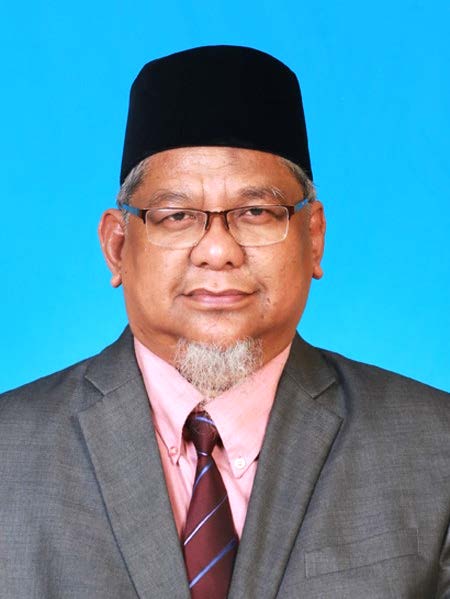
IR. DR. SYED MUSTAFA KAMAL SYED AMAN
Electronics/ Biomedical Engineer, Engineering Services Department, Ministry of Health Malaysia, Kuala Lumpur
TITLE: ROADMAP ON BIOMEDICAL ENGINEERING COMPETENCY.
Biomedical Engineering is one of several professional disciplines which contributes to safe, effective and economical healthcare. The role and primary responsibility of a Biomedical Engineering service is to manage medical device technologies, including to ensure adherence to recognised safety and quality, standards while taking into account cost and efficiency requirements. Biomedical Engineering is a learned profession that combines expertise and responsibilities in engineering, science, technology and medicine. Since public health and welfare are paramount considerations in each of these areas, Biomedical Technical Personnel (BTP) shall uphold an appropriate level of competencies embodied in its professional practice, research, patient care and/or training. The level of competencies shall reflect the standards of professionalism and personal practice for BTP.
Biography
Ir. DR SYED MUSTAFA KAMAL obtained a Bachelor of Science (Hons.) Degree in Electrical (Electronics) Engineering (University of Aberdeen, United Kingdom, 1986) and Master of Sciences in Biomedical Instrumentation Engineering (University of Dundee, United Kingdom, 1996) and Ph.D. degree in Biomedical physics (University of Exeter, United Kingdom, 2005). He has worked as an Electronics/ Biomedical Engineer for more than 34 years, initially at Department of Hospital Engineering, Sultanah Aminah Hospital, Johor Bahru (1988 – 1992) and at Engineering Services Department, Ministry of Health Malaysia, Kuala Lumpur (1993 – still now). He is a first in Malaysia certified as professional Engineer in the field of Biomedical from Board of Engineer Malaysia (BEM). He is a founder and
first President of the Biomedical Engineering Association Malaysia (BEAM) and Medical Electronics Engineering Association of Malaysia (MEAM). He is active in developing Malaysian Standards and Guidelines. His areas of interests are in Management of Active Medical Devices, Ionizing and non-ionizing Radiation, Functional Magnetic Resonance Imaging (fMRI) and touch perceptions.
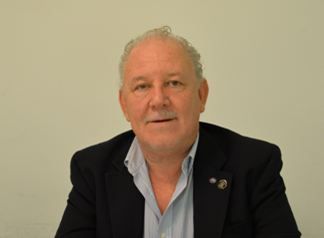
PROF. RICARDO ARMENTANO
Fellow of the International Academy of Medical and Biological Engineering, IAMBE
TITLE: REAPPRAISING CARDIOVASCULAR DISEASES PREDICTION THROUGH INNOVATIONS IN BIOMEDICAL ENGINEERING
SYNOPSIS: Cardiovascular diseases and strokes have always been prevalent mainly in the older adult population. This panorama constitutes one of the main challenges for the healthcare sector, which mainly focuses on the prevention, early detection, and minimally invasive treatment of these diseases. Stratification of cardiovascular risk is usually carried out from risk indicators based on traditional factors such as weight, sex, height, and blood pressure together with lipid and diabetic profiles. However, it is known that the parameters that characterize the mechanical properties of the arterial wall, such as arterial pulse wave velocity and carotid intima-media thickness are non-invasively measurable through IoMT systems, play a central role in a stratification of greater specificity. In this talk we are going to show a platform for direct stratification of intermediate/high cardiovascular risk oriented to eHealth for primary care. This type of approach allows the design of a predictive support system for personalized clinical decisions, where anthropometric, hemodynamic and pulse wave velocity assessments and adding intima–media thickness supervised by AI techniques can be automated through IoMT devices and applied to the subclinical classification of cardiovascular diseases.
Biography
Ricardo Armentano received his Engineering degree in 1984. He obtained his PhD in Physiological Sciences (1994) from the University of Buenos Aires and from Université de Paris VII Diderot in Biomechanics – Mechanics of Biological Systems (1999). The technological developments derived from his doctoral theses have led to renowned methods of cardiovascular diagnosis which are used in Latin American countries in vascular exploration centers, as well as in the European Hospital George Pompidou in Paris where he made his second Post Doc. Currently he is Distinguished Professor of Biomedical Engineering and Director of the Biological Engineering Department and Principal Investigator of UNPD/84/002 at Universidad de la República (Uruguay).
He is also Director of the PhD program on signal processing and head of the Bioengineering R&D group (GIBIO) at Universidad Tecnológica Nacional, Buenos Aires (Argentina). He is a member of IEEE EMBS Technical Committee on Cardiopulmonary Systems and Physiology-based Engineering. In 2019, Ricardo Armentano was conferred the IEEE R9 Eminent Engineer Award and he served as EMBS IEEE Distinguished Lecturer. He has served as the AdCom 2015 EMBS IEEE Latin America Officer and was the Chairperson of the 32nd International Conference EMBS/IEEE Buenos Aires 2010. He has acquired international recognition in the field of cardiovascular hemodynamics and arterial hypertension. He has taught in the fields of cardiovascular dynamics and in the broad area of engineering in medicine and biology and has extensive experience in PhD supervision and examination. He is on the editorial board of journals of cardiovascular research and is a reviewer for 15+ international scientific journals. He has 250+ publications including a book, book chapters and peer-reviewed articles. Recently, he was also appointed Fellow of the International Academy of Medical and Biological Engineering, IAMBE.
Ricardo Armentano has carried out professional and administrative tasks as an educator and as a scientist not only in Argentina, but also in Uruguay and other countries in the Americas and Europe. In his role as educator, he has designed, launched and managed 3 full-time degree courses in Biomedical Engineering, and in the postgraduate program, a two-year master’s degree in the same field and a doctorate in signal and image processing that has been qualified with the highest categorization. For 10 years, he has served as a member of the board of directors, director of the research and development council of the Favaloro University, dean of the Faculty of Engineering, Exact and Natural Sciences and finally Executive Scientific Academic Director with the status of CEO of the University Dr. Rene Favaloro Foundation.
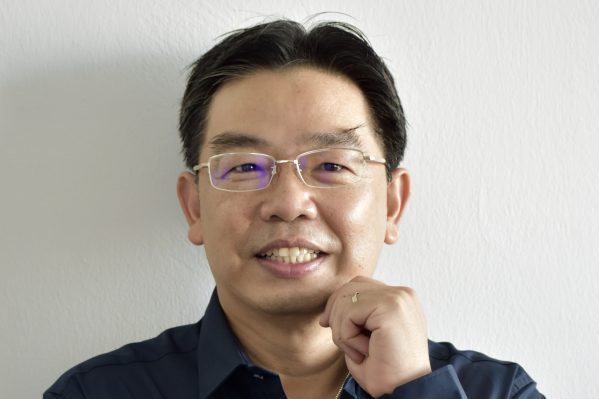
DR. KHOH SOO BENG
Director & Partner, PMO Innovations Sdn Bhd
TITLE: DIGITAL HEALTH 4.0 – TOWARDS PATIENTS CENTRIC INNOVATIONS THAT MATTER
The 4th Industrial Revolution and COVID-19 have brought about an unprecedented rate of change and disruptions to planet earth. In the new normal world of social distancing, digital is key to ensure continued delivery of health and wellness services. Thankfully, technology has played its part to blur the lines between the physical and virtual world.
Today’s healthcare innovations happened at the intersections between various disciplines of biosciences, engineering, IT, medical and social sciences. The affordable and reliable potpourri of technology such as IoT, Big Data, AI, software Apps, bio-sensors and wearables amongst others, have opened up endless possibilities limited only by our imaginations.
An opportunity presents to flip the existing one-size-fits-all healthcare services into the patient empowered, highly personalised, hyper-connected healthcare with support from medical professionals and the community. Cross disciplines and co-creation are vital in bringing health innovations that matter to the patients.
Biography
Dr Khoh Soo Beng has > 28 years of experience in a wide spectrum of roles in manufacturing, design engineering, IT, 6-Sigma Black-Belt, program management, and innovation in Fortune 500 MNCs based in Malaysia and abroad. He is instrumental in establishing the CREST’s Connected Healthcare Cluster and co-founded Digital Health Malaysia, where medical practitioners and technologists in Australia, UK and Malaysia, collaborate and innovate advanced health and wellness solutions with IoT, Big Data, Medtech and electronics. He is also the Northern Region Innovation Forum lead and contributed to Malaysia’s National IoT Strategic Roadmap spearheaded by MOSTI as a member of the working committee.
Dr Khoh’s technical expertise include real-time embedded systems, automotive Controller Area Network (CAN)bus- morphed into the Internet of Things(IoT) today, digital dashboards, knowledge management, Lean, Six Sigma methodologies & tools (DFSS, DMAIC, Lean, VOC, KJ, Kano, QFD, CPM, DFMEAs, FMEA, FTA, TRIZ), product design & development, design thinking and innovation. During his service at Motorola, Dr Khoh piloted the Paperless Office & Digital Dashboards, manufacturing MES / SCADA back in the late 90s (today is known as Industry 4.0). He was consulted by the UK industries and helped Rockwell Automation (formerly Allen Bradley) with DeviceNet design and its Conformance Test Specification. As a certified Design for Six Sigma (DFSS) Black-Belt of Motorola, Dr Khoh mentored design engineers to design products that met & exceed customer expectations, as well as the pervasive use of analytics and data- based decision-making. As Innovation Champion, Dr Khoh spearheaded Motorola Penang innovation initiatives and facilitated innovation workshops to develop new innovative design concepts; and was recognised as Motorola Innovation Champion of the Year in 2013. As Inventor Mentor, he helped engineers to file novelty ideas into patents. He was inducted as a Motorola Science Advisory Board Associate, i.e. top 1.5% Motorola Global Technical Staff. Other recognitions include Motorola CTO Innovation Framework Award (2013) and Senior Engineering VP Quality Star Award (2007). He has worked with many renowned Six Sigma experts,
innovation gurus, futurists, and spearheaded & institutionalised many rounds of innovation-related change management projects during his career.
Dr Khoh is a change agent and experienced trainer & facilitator in Innovation, Industry 4.0, IoT and Digital Health. He regularly does keynote speeches and guest lectures at prestigious conferences and local universities. He is also a mentor of AI Ventures Australia. Dr Khoh holds a PhD in Electrical & Electronics Engineering and has > 50 published papers in IET, IEM, IEEE, SAE transactions, Six Sigma and professional research journals. He is member of IAOIP, IET, IEM and a senior member of IEEE.
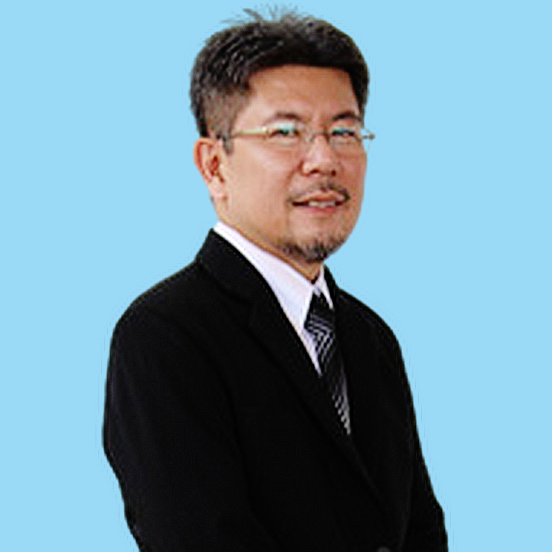
PROF. DR. KAHAR OSMAN
Member of IJN-UTM Cardiovascular Center
TITLE: BIOMEDICAL MODELINGS – WHAT IS THE FUTURE?
The application of Computational Fluid Dynamics method in biomedical engineering analysis has been the interest of many researchers since many many years ago. It started with simple two dimensional drawings of the body parts and the accuracy of the analysis was very low. The geometry then has improved to three-dimensional drawings and in recent years, patient-specific geometries have been widely used and become the standard of flow analysis. The technique of modelling has also improved greatly from steady flow to unsteady flow with Newtonian and non-Newtonian fluids have been assumed. Various turbulence models have also been adopted to increase the visualization accuracy. Recent trends have also seen integrated software being able to extract geometries from CT-Scan or MRI images to be analyzed. This technique has eliminated the needs of several software to obtain the CFD results. In the future, the biofluid modellings will be more useful to the medical practitioners in many aspects. How can we scientists and engineers help the future development?
Biography
Prof. Dr. Kahar Osman is a Professor at the Faculty of Engineering, UTM, Malaysia. He is active in the Computational Fluid Mechanics Group and IJN-UTM Cardiovascular Engineering Center. His research interests include applications of computational fluid mechanics (CFD), fluid-structure interaction (FSI) and experimental techniques in the study of mechanical and cardiovascular systems, as well as analysis, designs, and optimizations of cardiovascular devices. He has been practicing CFD for more than 25 years. He started his work in flow modelling in the area of mechanical engineering and moved to biomedical engineering field since 10 years ago. He and his team have produced their own code for CFD modelling for bio-fluid. He is also currently working on stent development for different applications. He has published more than 120 articles in peer reviewed journals and proceedings. He is currently the Chair for School of Biomedical Engineering and Health Sciences at Universiti Teknologi Malaysia. To date, he has led 15 projects as principal investigator and 26 projects as co-investigator. He has published more than 100 peer-reviewed academic journal articles in various level of publications.
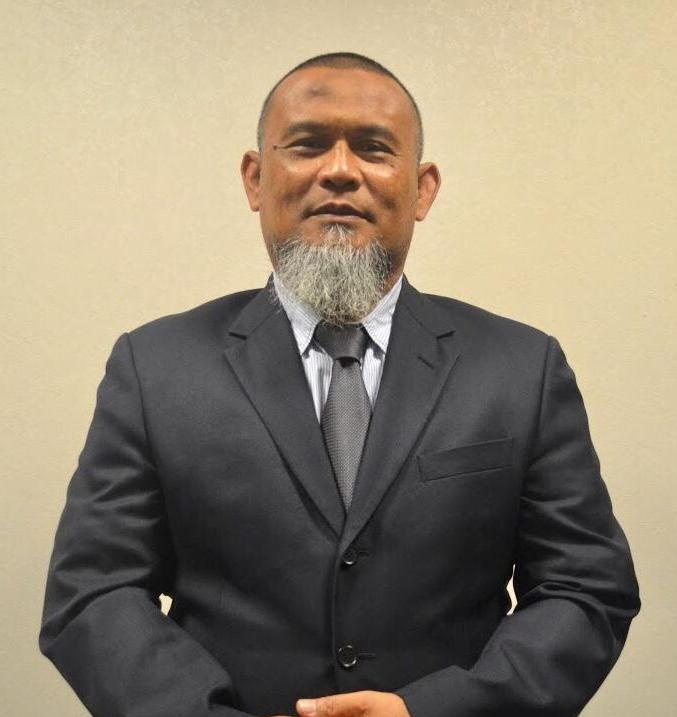
MR. AHMAD SHARIFF HAMBALI
Chief Executive of Medical Device Authority, Ministry of Health Malaysia
TITLE: MEDICAL DEVICE REGULATIONS: THE DOOR TO COMMERCIALIZATION
The ability to produce and subsequently commercialize innovative products is key to a sustainable economy. For a highly regulated product such as medical device, its compliance with safety and performance standards creates the confidence of the potential and targeted buyers and ultimately gains access to the market. MDA plays an important role in building the said confidence by implementing the medical device regulatory framework that is based on international standards and best practices. The regulatory framework provides an appropriate and robust foundation for Malaysia-made medical devices to gain wider market access, including the highly regulated ones. This topic provides an overview of the safety and performance requirements imposed by MDA as well as the steps in the journey to register a medical device that eventually opens the door to its commercialization. It also highlights efforts undertaken by MDA to assist any parties who have an interest to make a successful investment in this industry.
Biography
Mr Ahmad Shariff Hambali received his BSc (Physics) degree from University of Science Malaysia in 1988 and Master of Medical Physics from University of Malaya in 2003. He joined government service in 1993 as an assistant director at the Radiation Health and Safety Unit, Engineering Services Division, Ministry of Health Malaysia, with the role to regulate medical usage of ionizing radiation. Mr Ahmad Shariff was a member of the core team who pioneered and very instrumental in the development of the medical device regulatory framework in Malaysia. The regulatory framework, which was based on international standards and best practices, was subsequently gazetted as the Medical Device Act in 2012.
When MDA was established in 2013, he joined the newly-established regulatory body to lead the Registration, Licensing & Enforcement Division before being appointed as the Chief Executive of MDA in 2018. Between 2005-2008, Mr Ahmad Shariff has been appointed as a member of the Asian Harmonization Working Party (AHWP) Secretariat where he has been very much involved in the efforts to harmonize the medical device regulatory framework within the Asian region. Currently, he is chairing the MDA-Industry Collaborative Committee (MICC), a forum for collaborative works between MDA and the medical device industry in Malaysia. He is also a member of the Industrial Research Advisory Committee, SIRIM.
